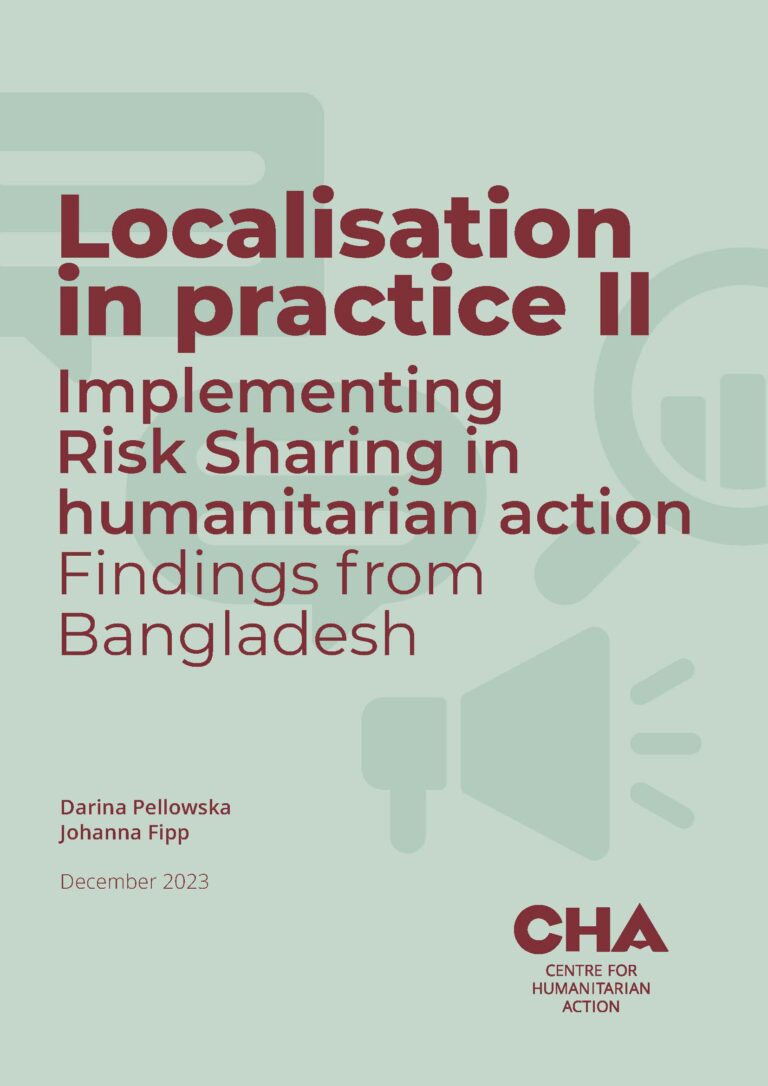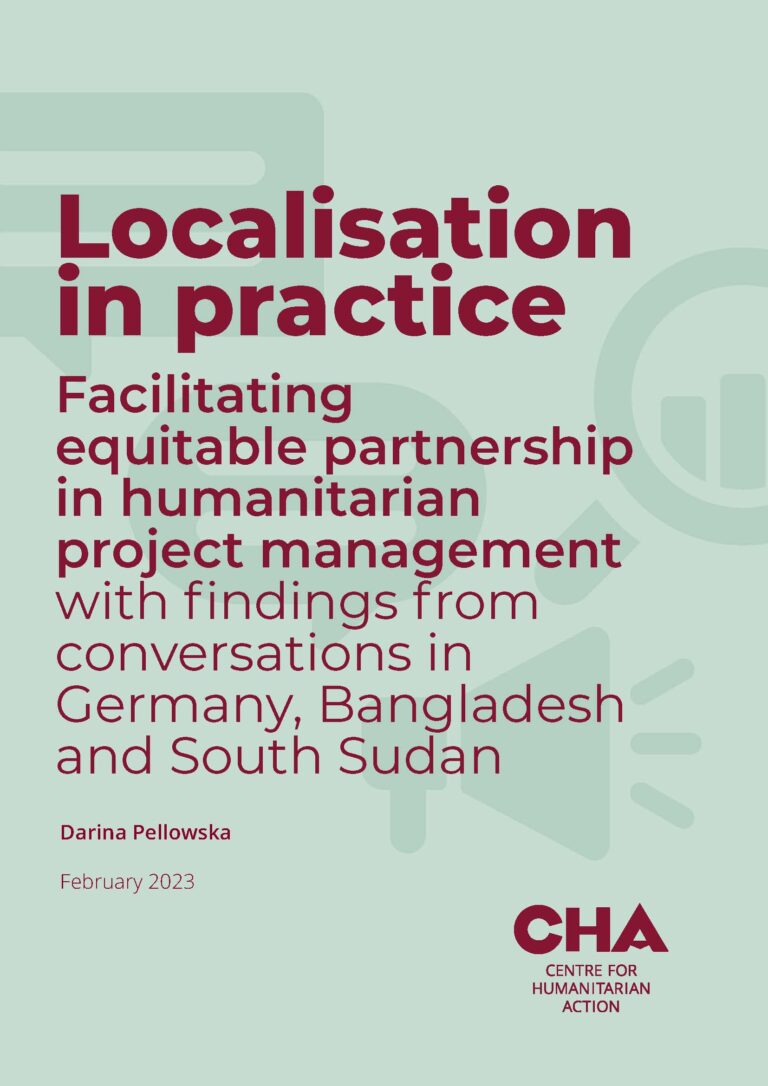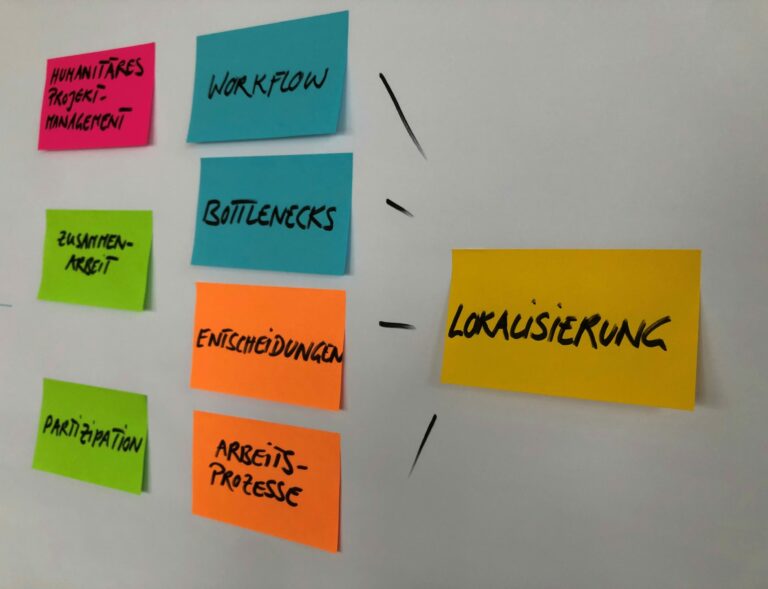| Date: | 18.04.2024 |
| Time: | 12:00 - 13:00 |
| Location: | Online via Zoom |
Discussing scope and partnerships
Risk in humanitarian action encompasses various dimensions, including safety, security, fiduciary concerns, compliance, operational hurdles, data security, and ethical and reputational challenges. While many humanitarian actors are increasingly assessing and addressing these risks systematically, this is often centred around individual interests. Individual risk management may, however, inadvertently impact the whole humanitarian delivery chain and worsen or even create new risks for humanitarian partners. To address this concern, the Risk Sharing Platform developed a framework, suggesting a collective approach to risk in humanitarian action.
In a recently published study on Risk Sharing in humanitarian action, funded by GFFO, CHA addressed donors and international and local organisations that are engaged in what they perceive as ‘equitable partnerships’ in Bangladesh. The aim was to glean insights from their efforts in managing risks in humanitarian actions collaboratively and in their common interest. While the study did not find fully developed examples of Risk Sharing, it documented valuable best practices and encountered challenges in initial endeavours. This shed light to two critical factors for successful Risk Sharing: Firstly, even committed donors who revisit their rules and regulations for increased Risk Sharing have a limited scope in sharing accountability for materialised risks. Secondly, for international organisations engaging in extensive bilateral Risk Sharing with their local/national partners, the selection and capacity-building of these partners are paramount. There is a strong inclination to collaborate with robust local or national organisations aligning with their international partners’ mission and operational norms.
In this online event Darina Pellowska aimed to delve into these findings and:
- Exchange insights on effectively involving donors. Should Risk Sharing be scaled down and involve only selective areas of joint risk management, effectively sparing joint accountability for materialised risks? Is there a need to redefine the notion of ‘sharing’ in ‘Risk Sharing’? Or can donors, within their constrained room to manoeuvre, still contribute to far-reaching Risk Sharing?
- Discuss the impact of Risk Sharing on partnerships and vice versa. Is Risk Sharing only for larger, well-equipped local and national organisations that mirror the modes of operations of their international partners? How can smaller organisations be integrated? How can risks be shared without diluting the valuable diversity and local expertise that deviates from international norms?
with
- Mehdi Poyan, Desk Officer for Principles of Humanitarian Aid, International Disaster Relief and Humanitarian Demining, Department of Crisis Prevention, Stabilization, Peace Promotion, and Humanitarian Aid – GFFO, and
- Christine Knudsen, Director of Humanitarian Policy, InterAction / Risk Sharing Platform
Format: Online on Zoom
Language: English
Find the recording of the event embedded below or directly on Youtube:






